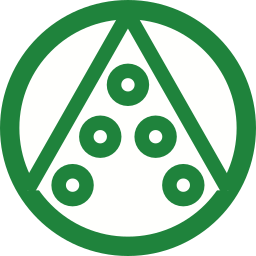So if I understand right we are now finally approaching ‘Haha one day a computer will be president’ territory for real! What I find lacking in the article is a more in-depth explanation what is the exact purpose of Open Source Technology in government - I don’t quite understand what the tech is supposed to accomplish that we absolutely cannot do with pencil and paper as well. Maybe it’s clearer when you come from a programming perspective?
Then the bit about DAOs - them being more cooperative and regenerative? ? ? First time I read about DAOs, and ‘decentralized autonomous’ sounds great! So off to wikipedia, where one of the first sentences is 'The precise legal status of this type of business organization is unclear." - that sounds rather foggy. Then it goes on with sth sth blockchain - and to be honest, in my limited experience everything around blockchain has turned out to be some kind of scam. Again, I’m not even smart enough to understand how these scams work, but at this point I am happy to believe that ‘blockchain’ is just a new term for ‘emperor’s new clothes’. If that isn’t so I’m happy about further explanation, but until that I don’t want society run by an algorithm (however that is supposed to be accomplished in practice).
I guess that one of the problems with a government run by computers is that it would easily end up being an IT-cracy, or at least would quickly be perceived as one.
While the article mentions DAOs and blockchains, I think it is more about stuff like this: https://decidim.org/
There are a lot of advantages:
- Free information. If it is just a piece of paper you have to go to the government office, which is supposed to have it and ask for it and it might very well be in use somewhere. That is you actually know it exists. If all of it is digital, it is easy to put it online, which makes it much much easier to find and use.
- Collaboration. By having meetings online, it becomes easier for people to comment on it and take part in the meetings. That is especially true for people with disabilities, but also for say parents, who can not leave their children alone at home just to go to a public meeting.
- More democracy. Elections are hard to do with pencil and papers. It is much easier to have a vote online, which makes direct democracy easier. Same for stuff like petitions.
- Ease of use. Having government services online, allows you to use them everywhere. So you do not have to go and hand in the form. That is just quicker and easier. Also things like names and so forth can be easily filled in automatically.
The key here is to use open source software as a tool, rather then have an AI overlord.
If only, but in reality it probably ends up being more like this crypto-bro shit: https://www.vice.com/en/article/wxjknx/tech-billionaires-launch-fund-to-create-new-libertarian-societies-balaji
None of the points on your list really needs technology to work. You can even have exchange of text instead of in-person-meetings. Switzerland, for example, had a lot of direct democracy going on before tech could be harnessed to support it. Of course I love how tech makes it easier to transmit information and talk to others around the globe, but it doesn’t enable something that couldn’t exist before. The only difference I can see in building a more direct democracy without tech would be that decisions take longer, and that might actually be a good thing.
Mind you I’m not arguing to remove all tech from government. I was busy dealing with government services the other day and was very glad to not have to go and see anyone in person. But I don’t buy that the tech just by itself will bring us any closer to a fair anarchist society. Adding a layer of tech (or anything else that the majority of the population doesn’t understand) means adding a layer of possible corruption that will have to be kept under check.
The problem is scale. You can do all of it on paper or in person, but that scales awfully badly. On a country level a referendum takes years to set up and organize. That is a huge problem for Switzerland as changing anything can take ages. Womens suffrage took Switzerland until 1971 on a federal level and 1990 on a canton level. Just as an example. That is for what really is a small country. Just think about something the size and compelxity of India for example. Switzerland only has four languages, India has hundrets and happens to be much bigger.
Part of the problem with all the “blockchain” stuff and even DAOs is that it is invariably used as a vehicle for wealth accumulation.
In theory you can distribute tokens for a DAO without the need to pay for them. Say a community decided to use a DAO they could accumulate tokens equally and then set a rule to not trade them. That then means no one person can accumulate a larger vote share.
The benefit of a blockchain in this scenario is an immutable, distributed record of decisions and votes by a community. Not the accumulation of wealth.





